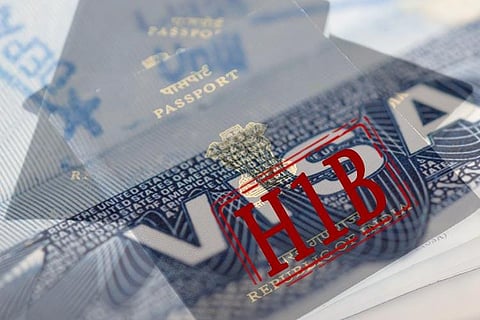

After recent data showed that approvals of H-1B visas went up in 2019 for the first time in four years, a new study shows that denial rates for H-1B petitions have increased significantly. According to a National Foundation for American Policy (NFAP) analysis of U.S. Citizenship and Immigration Services (USCIS) data, denial rates for H-1B petitions increased from 6% in FY2015 to 24% in the first three quarters (October to June) of FY2019 for new H-1B petitions for initial employment.
As per the analysis, in the first three quarters of FY 2019, USCIS denied 24% of H-1B petitions for ‘initial’ employment. This is four times the denial rate of 6% in FY2015. For continuing’ employment, 12% of H-1B petitions were denied. The figure of 12% also shows a four time jump as compared to FY2015, when the denial rate was only 3%.
A financial year in the US begins on October 1 and ends on September 30. So FY2019 is October 1, 2018 to September 30, 2019.
Initial employment petitions are for those who are applying for a new employee and first-time applicants, while petitions for continuing employment are usually extensions for existing employees at the same company or an H-1B visa holder changing to a new employer.
In terms of companies, Cognizant saw over 60% of applications for initial employment rejected in FY2019. This was followed by Capgemini (55%), Wipro (53%), Accenture (52%) and Infosys (45%).
Companies that saw the least number of denials were Apple, Facebook, and Cummins, where only 2% of applications were rejected. Google (3%), Walmart (3%), Amazon (6%), Mindtree (5%) also saw very few denial rates.
However, data from the USCIS H-1B Employer Data Hub earlier showed that there was a decline in denial rates for H-1B petitions in the third quarter of FY2019.
NFAP says that this is because USCIS approved the easily approvable cases selected in the April 2019 “lottery” for H-1B petitions. However, these don’t count against the annual limit as a new cycle for FY2020 began from April 2019.
Further, instead of denying petitions, USCIS issued Requests for Evidence (RFEs) for many cases.
USCIS data up to September 30, 2019 had shown that RFEs were asked for in 40.2% of cases as compared to just 22.3% in 2015 and 38% last year. And approval rates following RFEs too, have fallen significantly from 83.2% in 2015 to 65.4% in 2019.
An RFE is when USCIC asks for further evidence to ascertain if the employee requesting for an extension of their H-1B is in a specialty occupation, to know where the employer will be working during the tenure of their visa and to ensure that the employee is indeed working for the employer sponsoring their visa.
Thus, NFAP says that the reported decline in denial rates does not reflect a relaxation in restrictive administration policies.